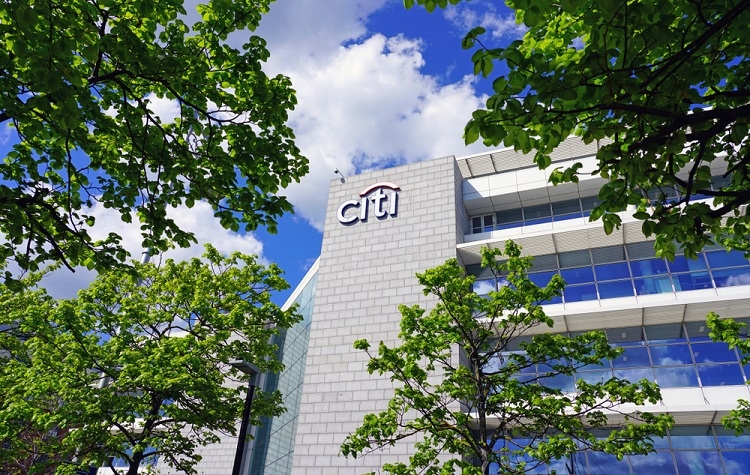Citi report flags Asia to play leading role in building a sustainable future
 |
| Citi report underlines opportunities for Asia to play a leading role in building a more sustainable future |
In the first quarter of this year, Citi conducted a survey among 259 institutional clients in 14 markets across the Asia-Pacific to better understand how they are embracing the ESG agenda. The results of the survey revealed that 54 per cent of the respondents already have ESG policies and practices integrated in their organisations’ corporate strategy while close to 90 per cent of the remaining respondents intend to roll out ESG policies and practices within five years.
Evidently, sustainability is coming of age in this region. With COVID-19 presenting new challenges, ESG issues that were previously on the periphery are now in the forefront for many companies. Over two-thirds of respondents attributed COVID-19 as a driving force of ESG policies and practices in their firms.
The main drivers behind the adoption of overall ESG standards among those who responded to the survey include: alignment to overall corporate sustainability strategy (65 per cent); positive impact on relationship with customers and stakeholders (57 per cent); social and environmental factors (48 per cent); regulatory obligations and pre-empting broader policy and regulatory changes (42 per cent); access to funding dedicated to ESG projects (28 per cent); and demand and pricing impact on ESG products (22 per cent).
“As a global, value-driven firm, we are dedicated to supporting the transition to a low-carbon economy. We view sustainable financing both as a mandate and as an opportunity to partner with our clients across geographies – to help them decarbonise their operations and achieve their enterprise sustainability goals,” said Peter Babej, Citi Asia-Pacific CEO.
The survey also asked respondents to rank the top three stakeholders who are most vocal in advocating ESG policies and practices in their organisations; 33 per cent ranked governments/regulators in the top position, followed by investors (21 per cent), and customers (20 per cent).
When asked to rank the top three sustainable and green finance instruments that they were most interested in or exploring, green bonds came on top at 22 per cent while most respondents (42 per cent) chose ESG-linked working capital financing as one of their top three choices.
The report highlighted the growth in environmental finance in the region. As part of Citi’s broader sustainable finance commitment, the bank has raised over $25 billion for clients in the Asia-Pacific in the first half of 2021, an increase of some 400 per cent versus the same period in 2020.
Citi is intensifying the support it provides issuer clients not just by offering green finance but also helping them accelerate the transition to a more sustainable and equitable future, areas that were highlighted in the report. At the same time, the bank is helping buy-side clients identify opportunities to transition their portfolios to cleaner companies.
“The scope of our sustainable financing efforts is growing continuously and covers all client segments –from investors repositioning their portfolios toward greener industries to corporates realigning their business models through acquisitions and divestitures. Our institutional commitment to building a greener future cuts across all these activities,” added Babej.
In many cases, Citi is now co-developing solutions together with its buy-side clients to ensure that their key requirements are addressed. A case in point is the recent launch of an equity benchmark index family, the Citi ESG World Indices, which is Citi’s first proprietary indices to offer a benchmark for the best-in-class ESG performers from across global markets as it helps buy-side clients transition their portfolios towards ESG.
The report also underlined what Citi has been doing across its own operations to ensure a more sustainable future. In the last 12 months, Citi has achieved its environmental impact goal of sourcing 100 per cent renewable electricity for all its facilities across the region.
What the stars mean:
★ Poor ★ ★ Promising ★★★ Good ★★★★ Very good ★★★★★ Exceptional
 Tag:
Tag:
Related Contents
Latest News
More News
- Citi sharpens its focus on institutional banking (February 09, 2026 | 19:58)
- SSC steps up engagement with FTSE Russell on market reforms (February 09, 2026 | 17:33)
- IFC considers $50m trade finance guarantee facility for Nam A Bank (February 09, 2026 | 17:28)
- Hoa Phat Agricultural Development debuts shares on HSX (February 06, 2026 | 14:00)
- Vietcap’s VAD 2026 draws strong global investor turnout (February 06, 2026 | 13:30)
- New rules ease foreign access to Vietnam equities (February 05, 2026 | 17:29)
- 0.1 per cent tax proposed on each transfer of digital assets (February 05, 2026 | 17:27)
- Ministry of Finance tightens policy delivery at start of year (February 05, 2026 | 17:26)
- Vietnam steps up market reforms as FTSE Russell reviews upgrade progress (February 05, 2026 | 17:20)
- 2025 profits mixed amid strong energy and farming results (February 05, 2026 | 17:18)






















 Mobile Version
Mobile Version